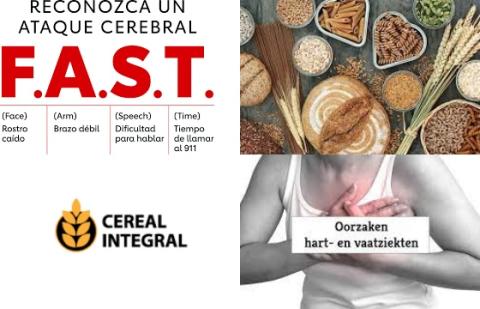
Objectives:
Although relationships between the intake of whole grains and refined grains and the incidence of cardiovascular disease (CVD) events and all-cause mortality have been investigated, the conclusions have been inconclusive. Therefore, this review article has been conducted.
Does consumption of whole grains reduce risk of stroke, coronary heart disease, heart failure, cardiovascular disease and all-cause mortality?
Study design:
This review article included 68 prospective cohort studies (46 for whole grains and 22 for refined grains) with 1,624,407 participants.
The included studies had follow-up periods between 5.4 y and 26 y, with sample sizes varying from 535 to 461,047 participants.
Based on NOS, the mean score of the included studies was 7.74 for whole grains and 7.45 for refined grains.
Egger’s test and funnel plot did not indicate any publication bias for the relationships between 30g/d increases in whole grain consumption and the risk of stroke [p = 0.481], cardiovascular disease [p= 0.144] or all-cause mortality [p = 0.409].
The quality of meta-evidence for the association between whole grain consumption and risks of stroke, coronary heart disease, heart failure, cardiovascular disease and all-cause mortality was moderate, moderate, low, high and high, respectively.
The quality of evidence for refined grain was low.
Results and conclusions:
The investigators found a significantly reduced risk of 3% for stroke per 30-g increase in daily whole grain consumption [RR = 0.97, 95% CI = 0.96 to 0.99, I2 = 0%].
The investigators found a significantly reduced risk of 6% for coronary heart disease (CHD) per 30-g increase in daily whole grain consumption [RR = 0.94, 95% CI = 0.92 to 0.97, I2 = 54.4%].
Sensitivity analyses indicated that the result was stable.
The investigators found a significantly reduced risk of 8% for cardiovascular disease (CVD) per 30-g increase in daily whole grain consumption [RR = 0.92, 95% CI = 0.88 to 0.96, I2 = 82.9%].
Sensitivity analyses indicated that the result was stable.
The investigators found a significantly reduced risk of 6% for all-cause mortality per 30-g increase in daily whole grain consumption [RR = 0.94, 95% CI = 0.92 to 0.97, I2 = 89.8%].
Sensitivity analyses indicated that the result was stable.
The investigators found whole grain consumption was linearly associated with coronary heart disease [p nonlinearity = 0.231] and nonlinearly associated with cardiovascular disease [p nonlinearity = 0.002] and all-cause mortality [p nonlinearity = 0.001].
The investigators concluded that consumption of at least 30g/d whole grains reduce stroke, coronary heart disease, cardiovascular disease and all-cause mortality.
Original title:
Consumption of whole grains and refined grains and associated risk of cardiovascular disease events and all-cause mortality: a systematic review and dose-response meta-analysis of prospective cohort studies by Hu H, Zhao Y, […], Hu D.
Link:
https://www.sciencedirect.com/science/article/pii/S0002916522105186?via%3Dihub
Additional information of El Mondo:
Find more information/studies on whole grain consumption, cardiovasculair disease and stroke right here.